A life’s work
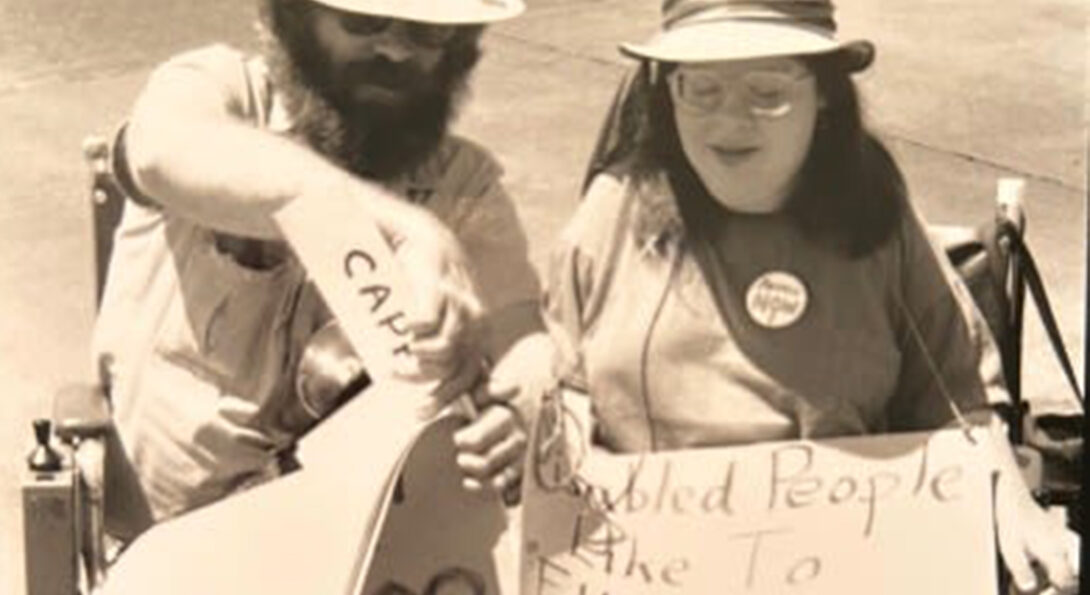
Carol Gill and Larry Voss are remembered for advancing disability rights, scholarship and pride.
Text
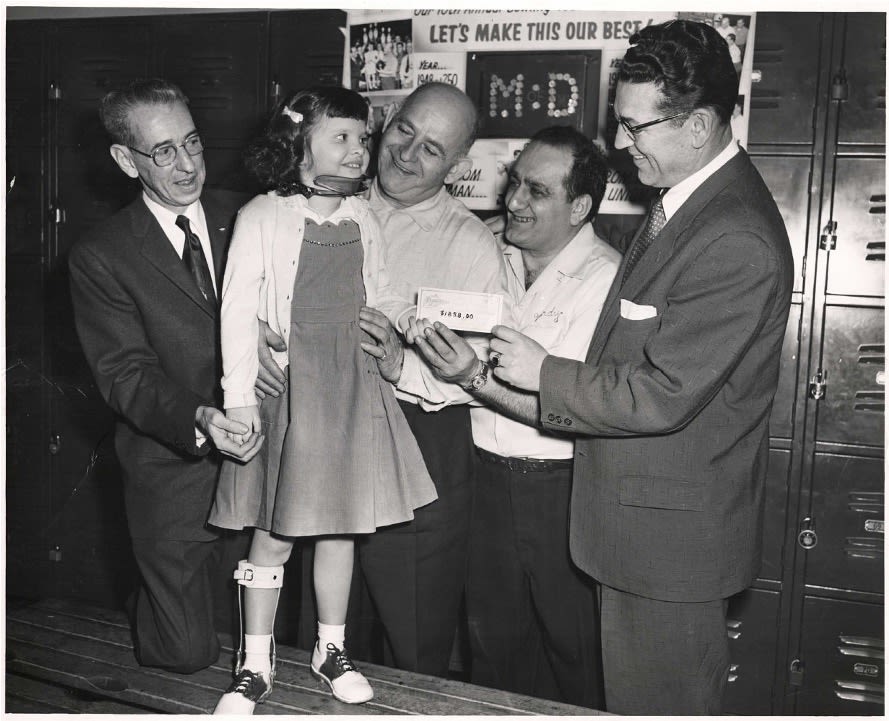
Carol Gill and Larry Voss helped found a movement.
With Larry, her husband, by her side, Gill became an internationally known researcher and scholar in disability studies. Her work centered on the lived experience of people with disabilities, including identity, community attitudes and social and political context.
“She not only shaped our program, she shaped the field,” said Tamar Heller, DHD distinguished professor and director of the Institute on Disability and Human Development in AHS.
The two were much-beloved partners, parents, teachers, mentors and advocates. In their memory, a college fund to support disability studies was recently established by friends and colleagues.
“People you talk to about my parents would say that they were some of the most amazing people they have ever met,” their son, Brian Voss, said. Gill and Voss were both disabled by polio as children. They met in the ’60s as students at Spalding School, a Chicago public school for children with disabilities.
“It was a time of awakening across America about issues of race and other dimensions of marginalization,” Gill said in a 2021 Chicago Tribune story about the school. “We had events to put to our words and experience and, in a sense, validate our existence. This helped us shift the whole meaning of ‘disabilities.’ It gave me something to carry on in my life’s work.”
Text
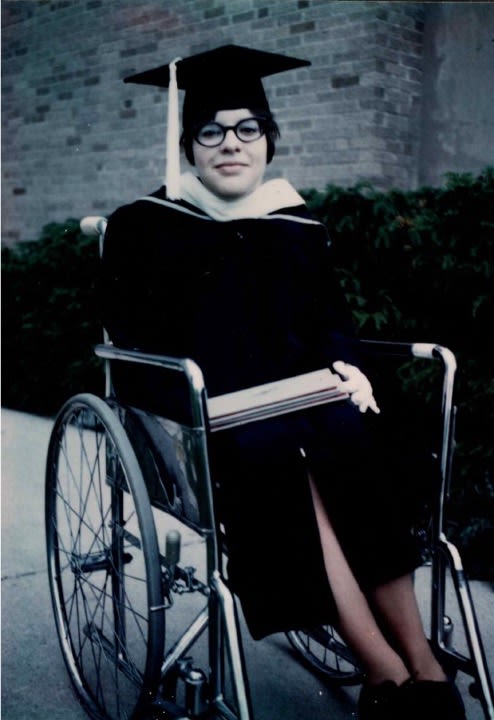
Voss, who was a special education teacher in Chicago and held a master’s degree, was a single parent when he married Gill in 1979. They moved to the San Fernando Valley, California, where Gill ’73 MA, ’79 PhD completed her postdoctoral clinical work and became director of rehabilitation psychology at a Glendale medical center.
Brian Voss recalls his dad, who had once been a driving instructor, rising at 5 a.m. to take his mom to work, a 15-mile journey, before heading to his job as a special education teacher and department chairperson in the Los Angeles public schools. He returned to pick her up every afternoon.
In the early 1980s, the disability rights movement started taking to the streets. The couple was there, along with Paul Longmore, Diane Coleman and other activists. Their son, by then a teenager, remembers his parents getting arrested at protests. “It was just something that they did,” he said. “Later I came to realize how powerful their efforts were to promote not just disability rights and awareness, but disability pride as well.”
During that time, the issue of legalized assisted suicide came to the forefront with the case of Elizabeth Bouvia, a woman with disabilities who petitioned her hospital to desist from feeding. Gill was an expert witness in the case, speaking against euthanasia and assisted suicide and arguing that instead of helping a person with disability die, society should focus on helping them live. It was one of the topics she continued to explore throughout her career as a researcher and scholar.
The couple returned to Illinois in the early ’90s, joining UIC in 1996. Gill met two colleagues who would become lifelong collaborators and friends: Teresa Savage, then a postdoc in nursing, and Kristi L. Kirschner, just starting her medical career at the Rehabilitation Institute of Chicago (now Shirley Ryan Ability Lab).
“She made me think about my own bias as a health care provider,” said Savage, now clinical associate professor emerita of nursing.
Quote
Carol helped other people understand the lived experience of disability through her scholarship, her contributions to the literature and her research.
Text
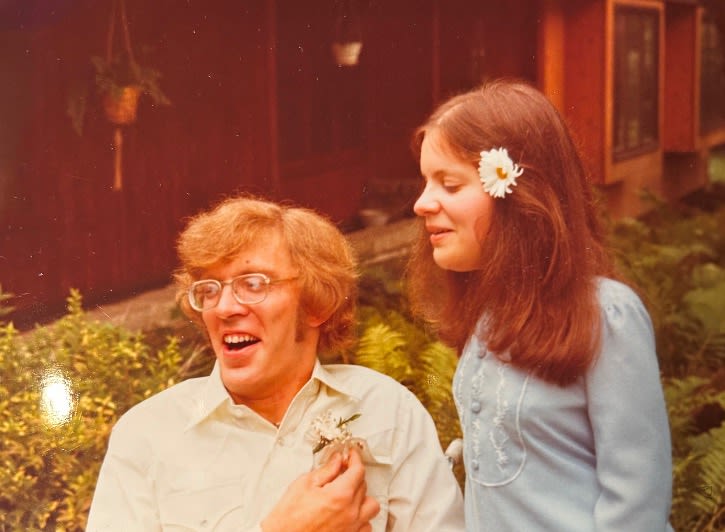
“I valued her intellect, her perspectives, her advice, her way of shining a light on disability identity,” said Kirschner, clinical professor of medical education in the College of Medicine’s Department of Medical Education.
“What does it mean to live as a person with a disability? How should health professionals come to understand the unique experience of living with disability, as well as disability as a cultural phenomenon? She taught me so much,” Kirschner said.
At UIC, Gill was director of the Center for Disability Research and head of the nation’s first PhD program in disability studies.
“Her legacy will live on with the many people she influenced,” Heller said. “Carol mentored so many students who went on to be great advocates, researchers and practitioners. She not only sparked their scholarly work, she also had a profound effect on their self-identity.”
Text
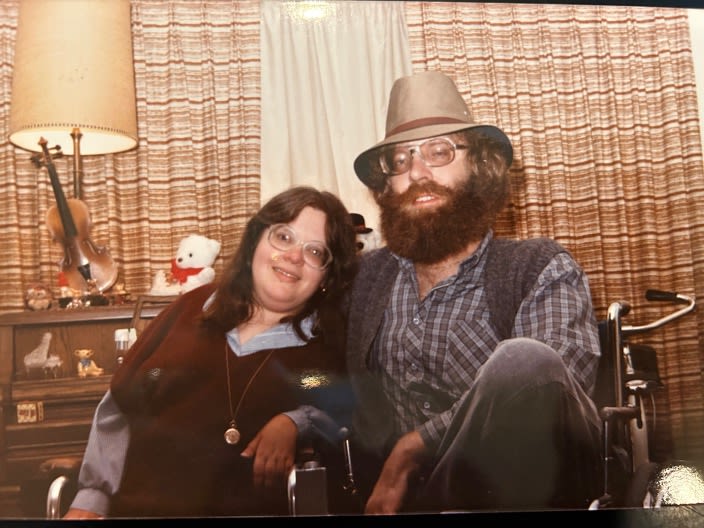
Heather Stone ’16 PhD DHD, a behavioral therapist in Buffalo Grove with a practice focused on children with
autism, was one of those students.
“Meeting Carol opened a world of possibilities, and as a young woman with a disability, I found in her a powerful role model,” Stone said. “She exemplified how a disabled woman could not only achieve her goals but also lead a fulfilling and purposeful life.”
Stone was married with two young children, “writing my dissertation while I was changing diapers.” Her kids are now 9 and 13, and “they’ve grown up with a blind mom, and that’s just the status quo for them,” she said.
Voss was also an influence. She saw how he supported Carol, realized what wasn’t working in her own life, and eventually ended her marriage.
“He was so down to earth, so grounded, so kind, so calm. He was this solace for her — the peer who understood her,” Stone said.
Text
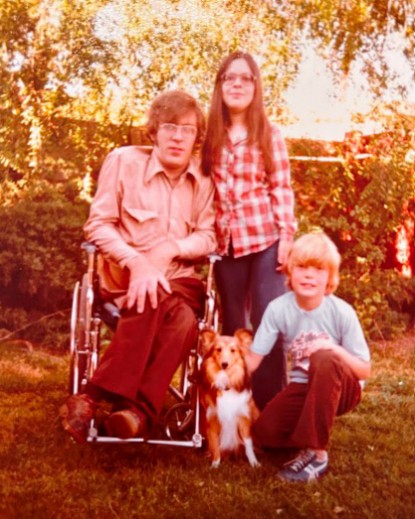
Savage likes to remember a story about the couple. As Gill’s lifelong wheelman, Voss was driving their accessible van in downtown Chicago. Gill disembarked and went “lickety split right down the middle of the street” in her wheelchair. Savage watched with alarm. Voss said calmly, “We’ll catch up with her.”
Voss was a project coordinator in the Institute on Disability and Human Development and longtime member
of the Chancellor’s Committee on the Status of Persons with Disabilities. His persistent advocacy helped move the campus toward greater accessibility, said Robin Jones, director of the Great Lakes ADA Center.
Automatic doors at building entrances, accessible parking, wheelchair lifts on shuttle buses, disability priorities for campus snow removal: these are some of Larry’s legacies, said Jones, who cochaired the committee with him.
Quote
He understood that things would not be accomplished overnight but at the same time, had little tolerance for excuses. He was a quintessential example of the generation of individuals who grew up fighting for their rights and refusing to be ignored.
Text
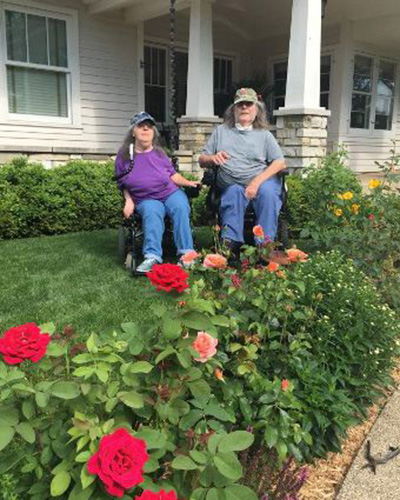
Gill and Voss were true partners in everything, friends say. They loved classic rock, Shetland sheepdogs, antiquing, cooking, gardening and spending time with friends and family, which included their caregivers. Voss was known for his extensive wardrobe of tropical shirts, later inherited by his six grandkids.
By their own example, they taught their son the work ethic that helped him and his wife, Amy Rainwater, establish Gold Wave Inc., a construction services contracting and consulting firm.
Friends describe Gill and Voss as a “sweet couple,” but they were also tough. Their son remembers his dad doing wheelies down the street and the time he intimidated a big neighbor boy who came looking for a fight with Brian. As for Gill, “she had grit, and she had grace,” Savage said.
“He was her heart, and his passing on Oct. 14, 2022 was the most painful thing she had to endure,” their son said in her eulogy. “But strong as she was, she pushed through his loss and continued to enjoy life to the fullest.”
When Gill was hospitalized for the last time before her death on Aug. 31, 2024, and health care providers spoke condescendingly to her — an attitude she had fought all her life — Savage gave them some of Gill’s published articles to read.
“She’s the smartest person I know, so don’t talk down to her,” Savage told health staff.
Savage, Kirschner and her husband, Raymond Curry, professor of medicine and medical education and another friend of the couple, established the Dr. Carol J. Gill and Larry Voss Disability Ethics Memorial Fund to support work in disability culture, identity and ethics in DHD.
To donate, visit yourgift.uic.edu/Gill or send a check payable to University of Illinois Foundation; in memo or cover note indicate “UIC Dr. Carol J. Gill Disability Ethics Memorial Fund” and mail to: PO Box 734500, Chicago, IL 60673-4500
“We want to preserve her legacy,” Kirschner said of the fund. “My hope is that this will continue the foundational work of disability studies for other students coming through the program.”
Quote
My disability affects my life in making it more complex and less spontaneous, because I have to do a lot of planning. But on the other hand, it challenges my creativity. And like a lot of people who’ve been disabled from an early age, it’s become a normal part of my life. So, in many ways, I consider my disability more of a lifestyle issue than a medical diagnosis.
| Video interview series with Larry Voss, July 2011, Disability Rights Education and Defense Fund